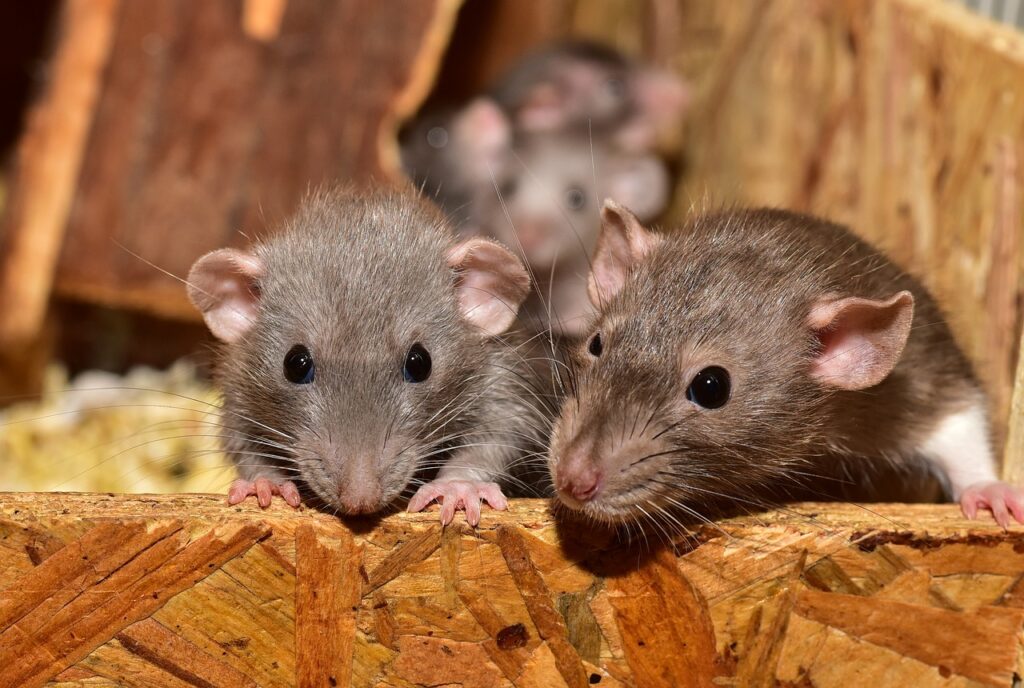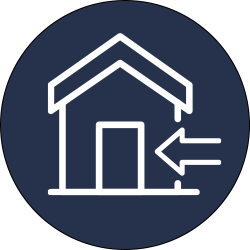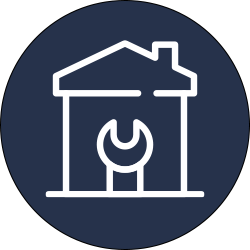Rats are the most common pest rodent in U.S. homes and one of the most destructive. The most common rats in Northeast Florida is the roof rat (aka palm rat, black rat, fruit rat, ship rat). The high humidity and proximity to coastline is a perfect habitat for the roof rat.
Jacksonville residents can also encounter the Norway rat and the wood rat. Adept at hiding, rats can infest your home without your knowledge.
Here’s what you need to know about a rat infestation. Plus, how to get rid of rats.

Rat Pest Control

Rat trapping
A successful rat control strategy focuses on an entire population, not just individual rats. In general, trapping is the most effective solution to a rat infestation. The number of traps set will vary based on the size of the population. Trutech will employ rat control like traps, rodenticides, and bait stations.
Generally, Trutech's rat trapping takes between five to fourteen days.

Rat Exclusion
Rats can squeeze through an inch size hole. Seal cracks and openings in building foundations and any openings for water pipes, electric wires, sewer pipes, drain spouts, and vents. Rats cam gnaw away materials like wood, caulk, plastic, and aluminum.

Remediation
Rat droppings can spread numerous diseases. We remove rat feces and apply sanitization agents to the affected area. Ectoparasites like mites, lice, ticks, and fleas are all found on rats. Ectoparasite agents exterminate those pests.
Rats in the House
Rats crave the safety of a shelter. When a rat sees your home, it’s a shining beacon of safety that offers a steady supply of food and water.
Typically, rats make their way into your home through chimneys, exposed utility wire openings, or gaps in your roof tiles. All they need to get inside is a 1-inch hole. If there’s not a convenient opening to squeeze through, they can gnaw at smaller holes until they fit.
Once inside, rats tend to stay out of your daily path. Depending on your home, they might set up shop in the basement, crawl space, attic, walls, or another cozy spot.
Signs of Rat Infestation
The most common types of rat found in Jacksonville are the Norway rat and roof rat. Woodrats and palm rats are also present but less prevalent as pest animals.
Although rats can quickly establish a large presence in your home, they can be difficult to spot. Their natural tendency to avoid humans leads them to scamper around your home, just out of sight.
- Rat Droppings
- Rat Noises
- Rub Marks along Walls
- Electrical Issues from Frayed Wires
- Unexplained Water Damage from Rat Damage
- Holes and Runways in Insulation
After hearing a potential rat on the loose, a careful look around your home could uncover physical clues of a rodent problem. You might find droppings, gnaw marks, tracks, smudge marks on the walls, or even a nest!
Problems with Rats
When you have rats in your home, they can cause damage and bring diseases.
Rats can reproduce quickly. In fact, a female Norway rat can produce 3 to 6 litters per year, with up to 12 young in each litter. So, a small rat problem can spiral out of control quickly. If you have a rat infestation on your hands, don’t hesitate to call in professional help. An experienced expert can help you spot the problem and find a solution for your property.
Rat Damage
Electrical Wires
In terms of physical damage, rats are known to gnaw at the structure of your home and electrical wires. Chewed electrical wires are estimated to be the cause of up to 20% of undetermined fires in the U.S. every year.
Water Damage
A rat infestation can lead to water damage. The rodents will gnaw on pipes which can cause leaks. Rat entry holes can also let rain water drip inside your house.
Rat Nests
Once rodents have entered your house and located sources of food and water, they will start building a nest. Rats use anything they can to build a nest—paper, clothes, insulation, you name it. Rats might even start chewing drywall and wiring in their efforts to build a nest; this can cause significant damage to your home and even increase the likelihood of a house fire.
Health Hazards
Beyond damage to your home, rats spread dozens of diseases. A few of the diseases a rat might bring into your home include rat-bite fever, salmonellosis, and leptospirosis.
In many cases, a disease is spread when you ingest contaminated food. Rats and mice eat or contaminate at least 20% of the world’s food supply each year. So, if you suspect that a rodent has been roaming around your kitchen, don’t eat anything that could be contaminated.
Call Trutech IN
At Trutech, we have the expertise to handle any nuisance wildlife problem you may have.

Our professional team of licensed technicians will quickly and humanely handle your wildlife needs
Quick Links
Business Hours
- Monday-Friday: 7:30am-6pm
- Saturday: 9am-5pm
- Sunday: Closed
